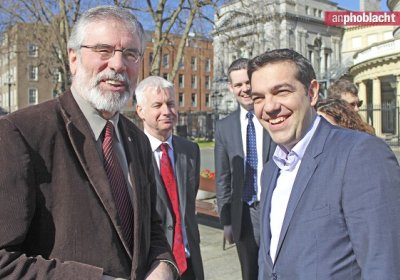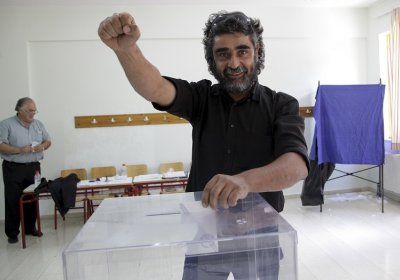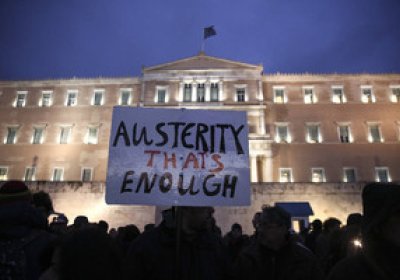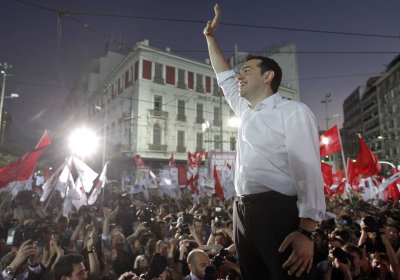SYRIZA
Members of the European Parliament show support for Greece against its creditors. "This debate is not exclusively about one country," said the Greece's left-wing Prime Minister Alexis Tsipras in a speech to the European Parliament on July 8. "It is about the future of our common construction."
 Supports of the 'no' vote celebrate in Athens on the night of July 5.
Leaders of Latin American left-wing governments have congratulated the Greek government and its people after Greece's historic July 5 referendum. Voters rejected debt austerity proposals by Greece's European lenders.
Venezuelan President Nicolas Maduro said: “The ‘no’ vote in Greece is a victory against the financial terrorism carried out by the International Monetary Fund (IMF).”
Supports of the 'no' vote celebrate in Athens on the night of July 5.
Leaders of Latin American left-wing governments have congratulated the Greek government and its people after Greece's historic July 5 referendum. Voters rejected debt austerity proposals by Greece's European lenders.
Venezuelan President Nicolas Maduro said: “The ‘no’ vote in Greece is a victory against the financial terrorism carried out by the International Monetary Fund (IMF).”
Streets in cities across Greece has erupted into celebrations as results from Sunday’s referendum showed voters clearly rejecting the bailout terms put forward by the country’s lenders.
 Thousands protest in Athens against austerity and in support of the SYRIZA government, June 17.
Thousands of Greek people took to the streets of Athens on June 17 to reject austerity measures and support the SYRIZA-led government, TeleSUR English said that day.
Thousands protest in Athens against austerity and in support of the SYRIZA government, June 17.
Thousands of Greek people took to the streets of Athens on June 17 to reject austerity measures and support the SYRIZA-led government, TeleSUR English said that day.
“A high-ranking official close to Greek Prime Minister Alexis Tsipras said the Greek government is not planning to give in to its creditors’ pressures and go against the program they had promised to the Greek people who brought them to power,” GreekReporter.com said on April 16. The comment came amid rising tensions between Greece's SYRIZA-led anti-austerity government and its creditors — the European Central Bank, the European Commission and the International Monetary Fund (IMF).
- Previous page
- Page 2
- Next page








